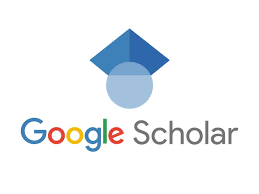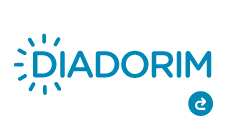APPROACHES IN TEACHING MICROBIOLOGY FOR THE PROMOTION OF LITERACY SCIENTIFIC EDUCATION OF MIDDLE LEVEL STUDENTS
Abstract
Brazilian public education currently faces numerous problems, from the lack of infrastructure in schools to inadequate levels of Scientific Literacy (CA) of students. Thus, teaching content related to Biology, especially Microbiology in a contextualized has been challenging. In the hope of bringing contributions to the teaching of Microbiology in public high schools, the work aimed to present new teaching proposals through of the E-book: "The Biology that we don't see: practical classes for schools without laboratories”. The work was elaborated after carrying out bibliographic surveys on the types of active methodologies and experimental practices related to Microbiology. Teaching by Investigation methodology was selected for its ability to provide the development of active learning activities to promote CA and critical thinking in students, through the resolution of problems contextualized in everyday life, in addition to the feasibility of its application in basic education by the Biology teachers. The work is suitable for classes from 1st to 3rd years of high school and based on the competences and skills of the Brazilian National Common Curriculum Base, having as target audience Biology teachers from the public network. The product aims to encourage teachers to develop practical classes in Microbiology, through the use of accessible materials combined with the application of the selected methodology for the development of cognitive and metacognitive skills, aiming at meaningful learning and the development of autonomy and protagonism, for the future formation of more conscious citizens about the role of science for the society in which they are inserted.
Downloads
References
BARBOSA, F. H. F.; BARBOSA, L. P. J. L. Alternativas metodológicas em Microbiologia: viabilizando atividades práticas. Revista de Biologia e Ciências da Terra, Campina Grande, v. 10, n. 2, p.134 – 143, 2010.
BASTOS, A. M. G. L. et al. A construção do livro didático na EAD/Ensp: Normas para os autores. Rio de Janeiro: Fiocruz/ENSP/EAD, 2010. 70 p.
BRANCO, A. B. G. et al. Alfabetização e letramento científico na BNCC e os desafios para uma educação científica e tecnológica. Revista Valore, Volta Redonda, v. 3, p. 702-713, 2018. Disponível em: https://revistavalore.emnuvens.com.br/valore/article/view/174/185. Acesso em: 09 set. 2020.
BRASIL. Instituto Nacional de Estudos e Pesquisas Educacionais Anísio Teixeira (Inep). Censo da Educação Básica 2019: Notas estatísticas. Brasília: Inep, MEC, 2020. 29 p.
BRASIL. Base Nacional Comum Curricular. Brasília: MEC, 2018. 600 p. Disponível em: http://basenacionalcomum.mec.gov.br/images/BNCC_EI_EF_110518_versaofinal_site.pdf. Acesso em: 22 dez. 2019.
CARVALHO, A.M.P.(org.). Ensino de ciências por investigação: condições para implementação em sala de aula. São Paulo: Cengage Learning, 2013. 164 p.
CHASSOT, A. Alfabetização científica: questões e desafios para a educação. Ijuí: Editora UNIJUÍ, 2018. 360 p.
FONSECA, K.T. et al. Experimentação sobre Micro-organismos e Higienização das Mãos em Escolas de nível Fundamental II e Médio. COGITARE, São Paulo, v. 1, n. 1, p. 47-62, 2018. Disponível em: https://ojs.ifsp.edu.br/index.php/cogitare/article/view/700. Acesso em: 06 abr. 2020.
GOMES, A. S. L. (org.). Letramento Científico: um indicador para o Brasil. São Paulo: Instituto Abramundo, 2015. 93 p. Disponível em: https://acaoeducativa.org.br/wp-content/uploads/2014/10/ILC_Letramento-cientifico_um-indicador-para-o-Brasil.pdf. Acesso em: 28 abr. 2020.
KIMURA, A.H. et al. Microbiologia para o ensino médio e técnico: contribuição da extensão ao ensino e aplicação da ciência. Revista Conexão UEPG, Ponta Grossa, v. 9, n. 2, p. 254 -267, 2013. Disponível em: https://177.101.17.124/index.php/conexao/article/view/5516/3664%20 . Acesso em: 11 dez. 2019.
OLIVEIRA, N. F.; AZEVEDO, T. M.; SODRÉ NETO, L. Concepções alternativas sobre microrganismos: alerta para a necessidade de melhoria no processo ensino-aprendizagem de biologia. Revista Brasileira de Ensino de Ciência e Tecnologia, Ponta Grossa, v. 9, n. 1, p. 260-276, 2016.
RIBEIRO, C. Metacognição: Um Apoio ao Processo de Aprendizagem. Psicologia: Reflexão e Crítica, Lisboa, v. 16, n. 1, p. 109-116, 2003.
ZABALA, A. A prática educativa: como ensinar. Porto Alegre: Artmed, 1998. 224 p.
DECLARAÇÃO DE ORIGINALIDADE E DIREITOS AUTORAIS
Declaro que o presente artigo é original, não tendo sido submetido à publicação em qualquer outro periódico nacional ou internacional, quer seja em parte ou em sua totalidade.
Os direitos autorais pertencem exclusivamente aos autores. Os direitos de licenciamento utilizados pelo periódico é a licença Creative Commons Attribution 4.0 (CC BY ): são permitidos o acompartilhamento (cópia e distribuição do material em qualqer meio ou formato) e adaptação (remix, transformação e criação de material a partir do conteúdo assim licenciado para quaisquer fins, inclusive comerciais.

Recomenda-se a leitura desse link para maiores informações sobre o tema: fornecimento de créditos e referências de forma correta, entre outros detalhes cruciais para uso adequado do material licenciado.

















